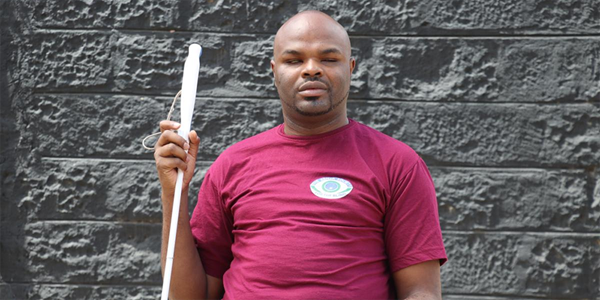Digital justice for Kenyan Samson Waweru is clear, as he believes there should be equal access to both cyber and print information for those who have disabilities and those who do not.
When using a computer, he says in a video interview with World Council of Churches (WCC) program executive Joy Eva Bohol, that it applies to social media platforms and access to them.
The World Council of Churches is an ecumenical partner supported by the Interdenominational Cooperation Fund apportionment, which enables United Methodists to share a presence and a voice in the activities of several national and worldwide ecumenical organizations.
Moreover, a similar set of principles applies to the relationship between the digital world and the church, says Nairobi-based Waweru, who works for the WCC's Ecumenical Disability Advocates Network (EDAN).
"The digital world is not always friendly to persons with disabilities. This is because accessing platforms present a challenge to us compared to our non-disabled counterparts," he says.
"This is because if you and I both have laptops, I will not access the digital content or the digital platforms unless I install special software called job access with speech use to read the screen out loud for me, which I have to buy for an extra $1,000," explains Waweru.
That means it is much more difficult for Waweru to cope with the digital platform due to his disability, presenting a difficult challenge.
The creators of the digital world create good innovation without bearing in mind every person’s needs with what is known as "universal design".
Elaborating, Waweru cites the example of in a building design, staircases are often designed without foreseeing there may be persons in wheelchairs who will need access.
"So, websites should be made accessible to allow every person access," he explains. "For example, for people who use sign language, you can use captioning, so they can learn whatever is on the video through the captions," says the EDAN representative. "These are important human rights affected by digital justice."
Therefore, he asserts it is essential to create accessible and understandable systems open to every human able to accommodate all kinds of personalities.
In raising awareness, the church has a significant role in encouraging and managing the appreciation of God's creation,
He is aware that the churches produce magazines, hold conferences and workshops online. The creation of awareness on the need to accommodate everyone is critical and to create inclusiveness of people with various disabilities to feel included and appreciated.
"And with that, God's love is reflected upon every human being without necessarily prejudicing those who have disabilities. So, we really need to think when it comes to different ways of accessing information, especially for the deaf," according to Waweru.
"It is easy to make captions so that someone who is blind can all access at the same time without having to overthink how one segment of the population will be accommodated.
He notes that various dynamics come into play, "and the church can equalize and enhance reasonable accommodation, through accessibility for all persons, for all of humanity."
World Council of Churches website
One of seven apportioned giving opportunities of The United Methodist Church, the Interdenominational Cooperation Fund enables United Methodists to share a presence and a voice in the activities of several national and worldwide ecumenical organizations. Please encourage your leaders and congregations to support the Interdenominational Cooperation Fund apportionment at 100 percent.





